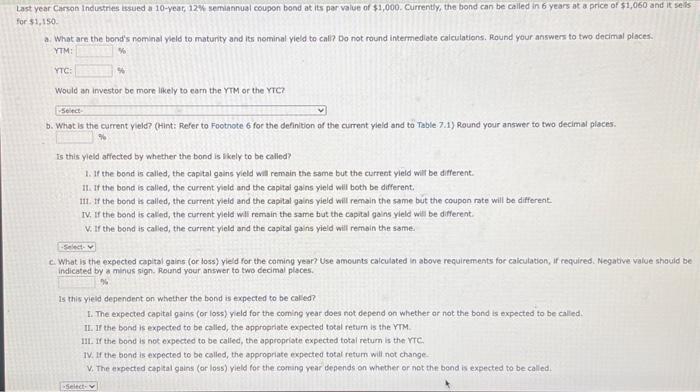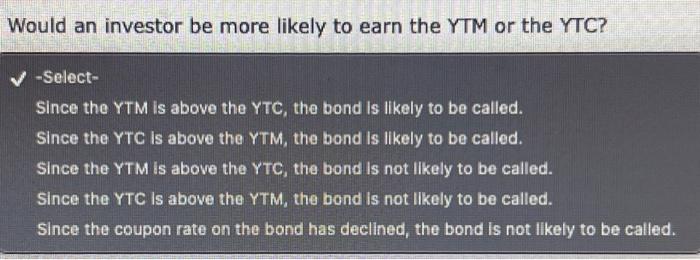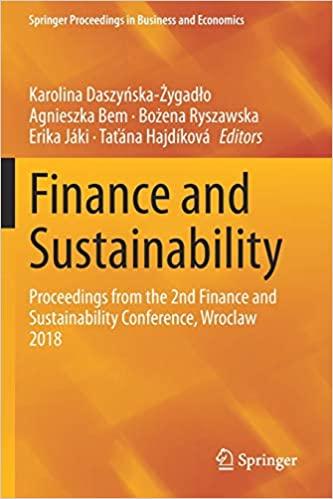a. What are the bond's nominal yeld to maturity and its nominal yield to call? Do not round intermediate calcutations. Round your answers to two decimal places. YTM: \%: YTC: Would an investor be more likely to earn the rTM or the YTC? b. What is the current yile? (Hint: Refer to Foothote 6 for the definition of the current yleld and to Table 7.1) Round your answer to two decimal places. is this yleld affected by whether the bond is ikely to be called? 1. If the bood is called, the capital gains yield wat remain the same but the current yield will be different. 11. If the bond is called, the current yeld and the capital gains yieid will both be different: 111. If the bond is called, the current yieid and the capital gains yield will remain the same but the coupon rote will be different. IV, If the bond is calend, the current yield wil remain the same but the capital gains yield will be different. v.if the bond is called, the current yield and the capital gains yield will remoin the same: c. What is the expected capital gains (or loss) yield for the coming year? Use amounts calculated in above requirements for caicutation, if required. Negative value should be indicated by a minus sign. Round your answer to two decimal places. Is this yield dependent on whether the bond is expected to be calied? 1. The expected capital gains (or loss) yeld for the coming vear does not depend on whether or not the bond is expected to be called. II. If the bond is expected to be called, the appropriate expected total retarn is the YTM. iI. If the bood is nok expected to be calied, the appropriate expected total retum is the VIC. IV. If the bond is expected to be called, the appropriate expected total return will not change- . The expected captal gains (or loss) yield for the coming vear depends on whether or not the bond is expected to be called. Would an investor be more likely to earn the YTM or the YTC? -Select- Since the YTM is above the YTC, the bond is likely to be called. Since the YTC is above the YTM, the bond is Ilkely to be called. Since the YTM is above the YTC, the bond is not llkely to be called. Since the YTC is above the YTM, the bond is not Ilkely to be called. Since the coupon rate on the bond has declined, the bond is not likely to be called








